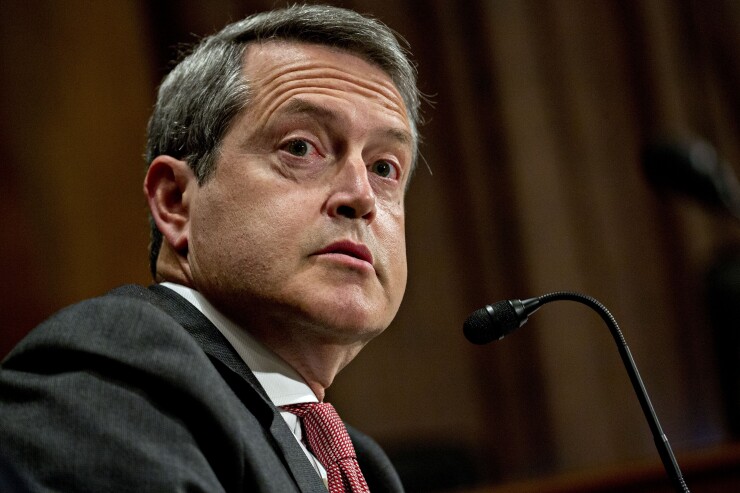Federal Reserve Governor Randal Quarles delivered an upbeat assessment of the U.S. economy and endorsed a “gradual” path for raising interest rates in his first public speech on monetary policy since joining the central bank in October.

“The U.S. economy appears to be performing very well and, certainly, is in the best shape that it has been in since the crisis and, by many metrics, since well before the crisis,” Quarles said in prepared remarks Thursday in Tokyo.
“With a strong labor market and likely only temporary softness in inflation, I view it as appropriate that monetary policy should continue to be gradually normalized,” he said. The views appear to align Quarles on monetary policy with Fed Chairman Jerome Powell, who testifies next week before Congress for the first time as central bank chief.
His comments follow the release of minutes from the Fed’s Jan. 30-31 policy meeting that showed confidence growing among policy makers that growth in 2018 may exceed their December forecasts and justify additional rate hikes this year. Officials have penciled in three hikes in 2018, according to their median projection released in December.
Quarles, who was named to the central bank’s board by President Donald Trump, said recently enacted tax changes and bipartisan budget deals could help sustain the economy’s expansion by increasing demand and spurring business investment. He also drew attention to capital investment data that had already improved in 2017.
“It might be early, but it is possible that the investment drought that has afflicted the U.S. economy for the past five years may finally be breaking,” he said.
On the riddle of lower-than-expected inflation in 2017, Quarles said it was likely due to “transitory factors that will fade through 2018.”
“A deviation from our target of a few tenths of 1 percentage point, especially one I expect to fade, does not cause me great concern,” he said.
Quarles, who’s also the Fed’s vice chairman for supervision of financial institutions, said he hoped to improve the regulatory framework the Fed and other agencies spent a decade putting in place after the financial crisis of 2008-09. His appointment to that role has spurred warnings from Democratic lawmakers not to dismantle post-crisis reforms.
“Given the breadth and complexity of this new body of regulation, it is inevitable that we will be able to improve them, especially with the benefit of experience and hindsight,” he said.





